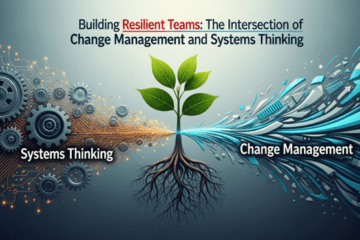In today’s fast-paced work environment, it’s not uncommon to experience stress that spills over into our personal lives. Maintaining a healthy work-life balance is crucial, not just for our well-being, but also for our productivity and job satisfaction. If you find yourself struggling with work-related stress, you’re not alone.
What is work-related stress?
Work-related stress is the response people may have when presented with work demands and pressures that are not matched to their knowledge and abilities, which challenge their ability to cope. It typically arises when employees feel they do not have the resources (such as skills, support, equipment, etc.) or time to meet these demands. Factors that can contribute to work-related stress include:
- High Workload: Excessive amounts of work or deadlines that are difficult to meet can lead to stress.
- Lack of Control: Feeling little or no control over work processes or input in decision-making can increase stress levels.
- Poor Work Organization: This includes unclear roles, job functions, and poorly managed organizational changes.
- Challenging Work Relationships: Conflict with colleagues or poor management styles can also be significant sources of stress.
- Job Insecurity: Uncertainty about job future or career prospects can contribute to stress.
- Work-Life Balance: Difficulty in balancing the demands of work and personal life leads to stress.
The impact of work-related stress can be extensive, affecting not only the individual’s health and well-being but also the performance of the organization. This can manifest through symptoms like anxiety, depression, decreased job satisfaction, and a reduction in productivity levels. Therefore, both employers and employees have a vested interest in identifying, managing, and reducing work-related stress.

10 Effective Ways to Manage Work-Related Stress
Here are ten effective strategies to help you manage stress and restore balance to your life.
Identify the Sources of Stress
The first step in managing stress is understanding where it comes from. Take a moment to reflect on what aspects of your job are causing you the most stress. Is it a certain project, a colleague, or a particular part of your day? Identifying these triggers can help you figure out strategies to cope with them.
Set Clear Boundaries
With the rise of remote work, the line between personal time and work time has blurred. Setting clear boundaries is essential. Determine specific work hours and stick to them as much as possible. Inform your team and supervisor about these boundaries to ensure they are respected.
Prioritize Your Tasks
Look at your to-do list and prioritize tasks based on urgency and importance. Tackle high-priority tasks first and try to break larger projects into smaller, manageable steps. This can help reduce the feeling of being overwhelmed and make your workload seem more manageable.
Master Time Management
Good time management can significantly reduce stress. Use tools like calendars, planners, and apps to schedule your tasks. Allocate specific times for breaks and ensure you stick to your timetable as closely as possible.
Communicate Openly
Don’t keep your stress bottled up. Communicate openly with your supervisor or HR department about your workload and how it’s affecting you. Most employers will appreciate your honesty and may be able to help you adjust your responsibilities.
Take Regular Breaks
Never underestimate the power of a break. Stepping away from your work for even a few minutes can help clear your mind and reduce stress. Try to take a short break every hour or so to stretch, grab a coffee, or just disconnect from work momentarily.
Maintain a Healthy Lifestyle
Physical activity, a balanced diet, and adequate sleep all play significant roles in how we handle stress. Try to incorporate regular exercise into your routine, eat nutritious meals, and ensure you get enough rest each night.
Seek Support
Talking things over with someone can provide a different perspective and reduce your stress levels. This could be a friend, family member, or a professional counselor. Support groups and networks can also offer advice and reassurance.
Limit Screen Time
Constant notifications and the pressure to be always available can increase stress. Try to limit the time you spend checking work emails and messages outside of working hours. This can help you disconnect from work and focus on personal time.
Evaluate Your Job Situation
If you’ve tried various strategies and your stress levels remain high, it may be time to consider whether your current job or work environment is a good fit for you. Sometimes, despite our best efforts, the only way to reduce stress is to make a change.

Conclusion
Managing work-related stress is crucial for maintaining not only your professional productivity but also your overall quality of life. By implementing these strategies, you can begin to find more balance and enjoy both your time and your career more fully. Remember, taking care of yourself isn’t a luxury — it’s a necessity.
Call to Action
If you found these tips helpful, feel free to share this post with others who might be struggling with similar issues. Let’s help each other build a healthier, more balanced work-life environment!


